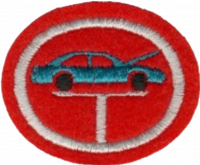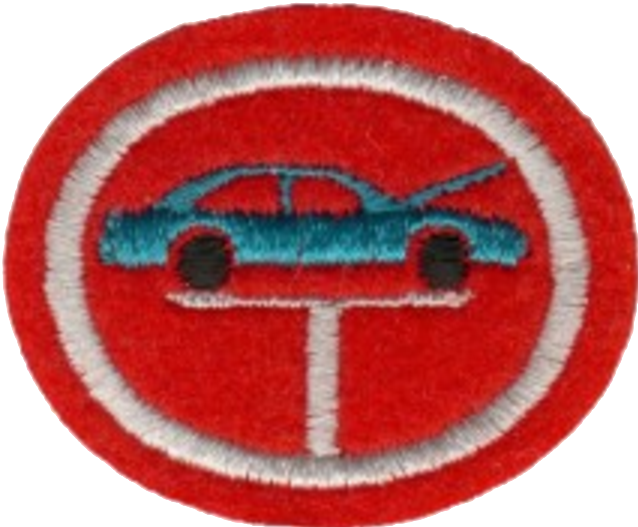Difference between revisions of "AY Honors/Automobile Mechanics/Answer Key 2/en"
From Pathfinder Wiki
< AY Honors | Automobile MechanicsAY Honors/Automobile Mechanics/Answer Key 2/en
(Updating to match new version of source page) |
(Updating to match new version of source page) |
||
| Line 267: | Line 267: | ||
<noinclude></noinclude> | <noinclude></noinclude> | ||
==References== | ==References== | ||
| − | |||
| − | |||
<noinclude></noinclude> | <noinclude></noinclude> | ||
{{CloseHonorPage}} | {{CloseHonorPage}} | ||
Latest revision as of 00:17, 19 July 2022
Automobile Mechanics
Skill Level
2
Year
1928
Version
22.02.2026
Approval authority
North American Division
1
Properly start an automobile or light truck engine with an automatic transmission, and then one with a standard transmission. Briefly explain why it is necessary for the engine to have the proper oil, water, fuel, and battery pressures and levels for proper engine operation.
2
Briefly describe how a keyless ignition system functions. Properly start an automobile or light truck with a push button start/stop assembly.
3
Briefly explain the following concepts:
3a
The principles of four-cycle engine vs. a two-cycle engine.
3b
The difference between a gasoline and a diesel engine.
3c
The major differences between carburetor fuel systems and fuel-injection systems.
3d
The principles of an electric vehicle.
4
What is an ECU? Give three practical examples of its use.
5
Briefly explain the function of the following:
5a
Engine: crankshaft, connecting rods, pistons, camshaft, valves, oil pump, carburetor, fuel injectors, ignition distributor, fuel distributor, electrical system including alternator, battery, and regulator
5b
Transmission: The difference between standard transmission and automatic transmission, and how the engine torque is transmitted to both kinds of transmissions; the purpose of overdrive
5c
Drivetrain: The difference between rear wheel drive, front wheel drive, and all-wheel drive
5d
Brakes: The difference between drum brakes and disk brakes, standard brakes and power brakes, and the parking brake
6
Describe two techniques used to measure the tread depth of a tire.
7
What is a tire pressure gauge? Briefly describe:
7a
where to check for the recommended tire pressure
7b
the process of adjusting the tire pressure as necessary
7c
what takes place when the tire pressure is low
8
How often should the engine oil, transmission oil, and cooling fluid be changed?
9
Give some pointers on proper care of the vehicle and its finish, both interior and exterior.
10
Be able to describe and locate each of the following items, if equipped.
10a
Fuel Pump
10b
Gaskets
10c
Muffler
10d
Spark Plugs
10e
Timing Belt
10f
Water Pump
10g
Radiator
10h
Catalytic Converter
10i
Paddle Shifters
10j
Single/Dual Exhaust
10k
Cruise Control
10l
Suspension (Shocks & Struts)
10m
Brake Assist
10n
Air Bags
10o
Keyless Entry
10p
Fuse Box
10q
Master Cylinder
11
Perform typical automotive maintenance as listed below:
11a
Check engine and transmission oil levels.
11b
Check water/antifreeze level. Change and flush the cooling system.
11c
Change engine oil and filter.
11d
Change a tire, following proper safety procedure.
11e
Lubricate the chassis according to the vehicle service manual.
11f
Check windshield wipers and replace if necessary.
11g
Check windshield wiper fluid reservoir and adjust fluid levels as necessary.
11h
Check power steering fluid levels.
11i
Check front, rear, and turning signal lights.
11j
Check air filter and replace if necessary.
11k
Check cabin filter and replace if necessary.


